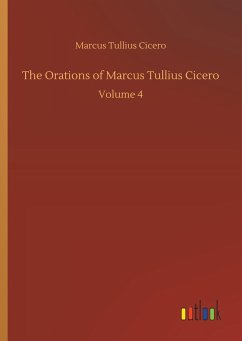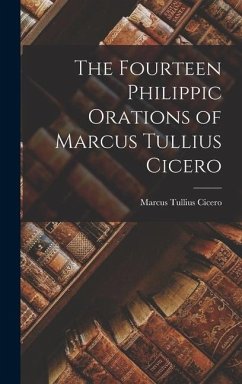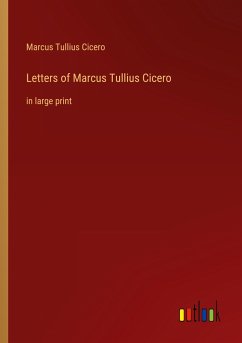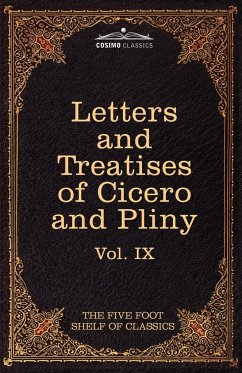
Letters of Marcus Tullius Cicero with His Treatises on Friendship and Old Age; Letters of Pliny the Younger
The Five Foot Shelf of Classics, Vol. IX
Herausgeber: Eliot, Charles W.

PAYBACK Punkte
14 °P sammeln!
Translator names not noted above: E.S. Shuckburgh, William Melmoth, F.C.T. Bosanquet Originally published between 1909 and 1917 under the name "Harvard Classics," this stupendous 51-volume set-a collection of the greatest writings from literature, philosophy, history, and mythology-was assembled by American academic CHARLES WILLIAM ELIOT (1834-1926), Harvard University's longest-serving president. Also known as "Dr. Eliot's Five Foot Shelf," it represented Eliot's belief that a basic liberal education could be gleaned by reading from an anthology of works that could fit on five feet of bookshe...
Translator names not noted above: E.S. Shuckburgh, William Melmoth, F.C.T. Bosanquet Originally published between 1909 and 1917 under the name "Harvard Classics," this stupendous 51-volume set-a collection of the greatest writings from literature, philosophy, history, and mythology-was assembled by American academic CHARLES WILLIAM ELIOT (1834-1926), Harvard University's longest-serving president. Also known as "Dr. Eliot's Five Foot Shelf," it represented Eliot's belief that a basic liberal education could be gleaned by reading from an anthology of works that could fit on five feet of bookshelf. Volume IX features: ¿ three works by Roman philosopher MARCUS TULLIUS CICERO (106 BC-43 BC): the dialogue On Friendship, a timeless consideration of that happy state; the essay On Old Age, his reflections on aging and death; and his Letters, including his thoughts on matters both personal and political ¿ the Letters of Roman lawyer PLINY THE YOUNGER (61-c. 112), which remain some of the most valuable firsthand documents we have of the period, particularly since he moved in politically important circles; the letters include his eyewitness account of the disastrous eruption of Mount Vesuvius.



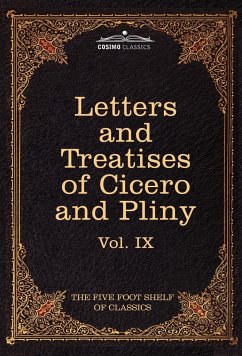


![The Letters of Marcus Tullius Cicero to Several of His Friends, With Remarks [And Tr.] by W. Melmoth. to Which Is Now Added a General Index Cover The Letters of Marcus Tullius Cicero to Several of His Friends, With Remarks [And Tr.] by W. Melmoth. to Which Is Now Added a General Index](https://bilder.buecher.de/produkte/67/67011/67011181n.jpg)

